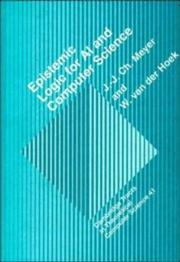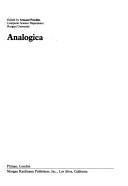| Listing 1 - 10 of 569 | << page >> |
Sort by
|
Book
Year: 2022 Publisher: Research Triangle Park, NC : RTI Press/RTI International,
Abstract | Keywords | Export | Availability | Bookmark
 Loading...
Loading...Choose an application
- Reference Manager
- EndNote
- RefWorks (Direct export to RefWorks)
Knowledge System Development: Insights from Indonesia and International Applications illustrates how knowledge systems work in the evidence-based policy making process and the dynamics of different actors in the ecosystem. Applying the Knowledge System Model 2.0 in Indonesia and in selected international case studies, it explores key issues and dynamics in the knowledge-to-policy process in Indonesia and offers important insights for application in other country contexts. Written from the unique vantage point of knowledge system actors themselves in cooperation with development practitioners and researchers, the book captures efforts to clarify the roles of different actors in the knowledge system and how they interacted to influence policy. When the actors and institutions in the knowledge system interact and challenge each other to articulate and commit to a shared purpose, it is easier to navigate the inherent tensions between technical solutions and political objectives to advance the reform agenda. Intermediaries in the knowledge system can play an important role in facilitating the interactions between these actors and institutions.
Book
Year: 2022 Publisher: Research Triangle Park, NC : RTI Press/RTI International,
Abstract | Keywords | Export | Availability | Bookmark
 Loading...
Loading...Choose an application
- Reference Manager
- EndNote
- RefWorks (Direct export to RefWorks)
Knowledge System Development: Insights from Indonesia and International Applications illustrates how knowledge systems work in the evidence-based policy making process and the dynamics of different actors in the ecosystem. Applying the Knowledge System Model 2.0 in Indonesia and in selected international case studies, it explores key issues and dynamics in the knowledge-to-policy process in Indonesia and offers important insights for application in other country contexts. Written from the unique vantage point of knowledge system actors themselves in cooperation with development practitioners and researchers, the book captures efforts to clarify the roles of different actors in the knowledge system and how they interacted to influence policy. When the actors and institutions in the knowledge system interact and challenge each other to articulate and commit to a shared purpose, it is easier to navigate the inherent tensions between technical solutions and political objectives to advance the reform agenda. Intermediaries in the knowledge system can play an important role in facilitating the interactions between these actors and institutions.
Book
Year: 2022 Publisher: Research Triangle Park, NC : RTI Press/RTI International,
Abstract | Keywords | Export | Availability | Bookmark
 Loading...
Loading...Choose an application
- Reference Manager
- EndNote
- RefWorks (Direct export to RefWorks)
Knowledge System Development: Insights from Indonesia and International Applications illustrates how knowledge systems work in the evidence-based policy making process and the dynamics of different actors in the ecosystem. Applying the Knowledge System Model 2.0 in Indonesia and in selected international case studies, it explores key issues and dynamics in the knowledge-to-policy process in Indonesia and offers important insights for application in other country contexts. Written from the unique vantage point of knowledge system actors themselves in cooperation with development practitioners and researchers, the book captures efforts to clarify the roles of different actors in the knowledge system and how they interacted to influence policy. When the actors and institutions in the knowledge system interact and challenge each other to articulate and commit to a shared purpose, it is easier to navigate the inherent tensions between technical solutions and political objectives to advance the reform agenda. Intermediaries in the knowledge system can play an important role in facilitating the interactions between these actors and institutions.
Book
ISBN: 9780444887375 0444887377 Year: 1990 Publisher: Amsterdam : North-Holland,
Abstract | Keywords | Export | Availability | Bookmark
 Loading...
Loading...Choose an application
- Reference Manager
- EndNote
- RefWorks (Direct export to RefWorks)
Artificial intelligence --- Knowledge Representation --- Uncertainty
Book
Abstract | Keywords | Export | Availability | Bookmark
 Loading...
Loading...Choose an application
- Reference Manager
- EndNote
- RefWorks (Direct export to RefWorks)

ISBN: 052146014X Year: 1995 Publisher: Cambridge : Cambridge University Press,
Abstract | Keywords | Export | Availability | Bookmark
 Loading...
Loading...Choose an application
- Reference Manager
- EndNote
- RefWorks (Direct export to RefWorks)

ISBN: 0273087800 9780273087809 Year: 1988 Publisher: London Pitman
Abstract | Keywords | Export | Availability | Bookmark
 Loading...
Loading...Choose an application
- Reference Manager
- EndNote
- RefWorks (Direct export to RefWorks)
Learning --- Analogic --- Knowledge Representation --- Artificial intelligence
Book
ISBN: 1538661136 1538661144 Year: 2018 Publisher: Piscataway, New Jersey : Institute of Electrical and Electronics Engineers,
Abstract | Keywords | Export | Availability | Bookmark
 Loading...
Loading...Choose an application
- Reference Manager
- EndNote
- RefWorks (Direct export to RefWorks)
Book
ISBN: 153861829X 1538618303 Year: 2018 Publisher: New York : IEEE,
Abstract | Keywords | Export | Availability | Bookmark
 Loading...
Loading...Choose an application
- Reference Manager
- EndNote
- RefWorks (Direct export to RefWorks)
Book
ISBN: 166545282X 1665452811 Year: 2022 Publisher: Piscataway, NJ : IEEE,
Abstract | Keywords | Export | Availability | Bookmark
 Loading...
Loading...Choose an application
- Reference Manager
- EndNote
- RefWorks (Direct export to RefWorks)
| Listing 1 - 10 of 569 | << page >> |
Sort by
|

 Search
Search Feedback
Feedback About UniCat
About UniCat  Help
Help News
News